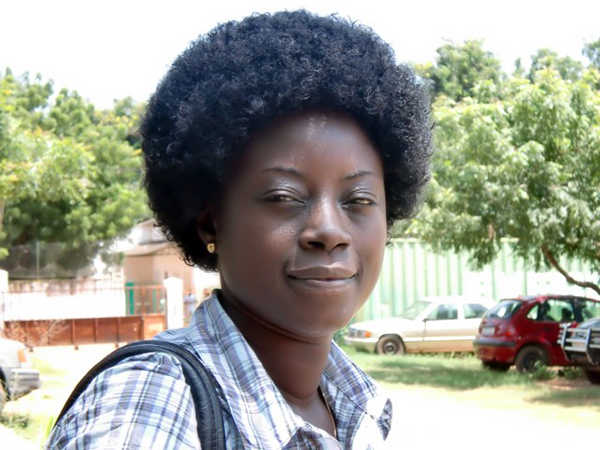Filomena Mascarenhas: History of an experience

Filmomena Mascarenhas, a deeply committed peacebuilder, has worked with Voz di Paz since 2007. Prior to this she worked within the Ministry of National Defence in Guinea-Bissau, an experience which left her with a deeper understanding of the inner workings of the military. Here she recounts her experience, the prejudices she encountered and shares how this shaped her own views.
In my life the most memorable experience was the appointment to the post of Minister of National Defense (April 2003 to May 2004). The appointment did not inspire me as it didn’t align with my personal interests, I never saw myself working in the defense sector. Consequently, I decided not to accept the position and refrained from taking office.
Following this, many friends, and not only mine, urged me to accept the challenge given the difficult situation which our country faced. Out of respect I ended up saying yes.
My first day as Minister of National Defense was tough because it coincided with a meeting convened by the then Chief of the armed forces. The meeting ran from 9:00 to 20:00 and was attended by all the heads of branches, military inspectors, senior officers and commanders of military zones.
During the meeting, the military spoke of the difficult situation which existed in the barracks and asked me to bring their concerns to the President of the Republic Dr. Kumba Yala. This meeting was a shock that opened my eyes. It awakened me to the prejudices I, as a civilian, held towards the military and it gave me a glimpse of the great challenges which this institution had to face.
However, after a few months it seemed that I had always worked in the Ministry. The relationship with the military was the most outspoken I had. For example, during a work meeting, the then Chief of the Armed Forces, in the presence of the Inspector of the Armed Forces, told me the following:
"Miss Minister, you have to know that upon your appointment we were concerned. This also applied to the Inspector who came to me saying that the President did not respect the military, so he appointed a woman, even worse a little girl. Now, you are the one who brings me the Inspector when I ask for him! They tell me, ‘he is at the Ministry with the lady Minister.’” He continued, “One day I told him, ‘Inspector! It seems that you are very fond of our Minister?’ The inspector responded to me, ‘a lot...she is like my niece...the President took time to send her here. If she had been here much earlier, today this institution would be different.”
Many treated me with respect and showed a willingness to collaborate during my stay at the Ministry of National Defense, and this continued even after I had left. As an example, the most profound diagnosis of the causes of conflict in Guinea-Bissau, conducted by Voz di Paz, continues with the participation of military personnel of different rank and office.
Voz di Paz has benefited from this confidence. The connection has made the organization of meetings with the military easier, ensured the availability of their installations for the purpose of work, and resulted in their participation and openness in discussions.
Honestly, from the Ministry, I keep good memories of a frank and honest relationship with the armed forces.
From this experience I learned that you should never give a promise which you cannot keep to a person in the military, and if you want to have authority,then you should never use anything that is intended for your own benefit.
I conclude with this advice to all women: "It is good that you never lack courage and self-esteem. There is no one who has more courage than a woman, proof of this being the act of bringing a human being into the world."
Thanks,
Filomena Mascarenhas
You can read the original article in Portuguese here.
